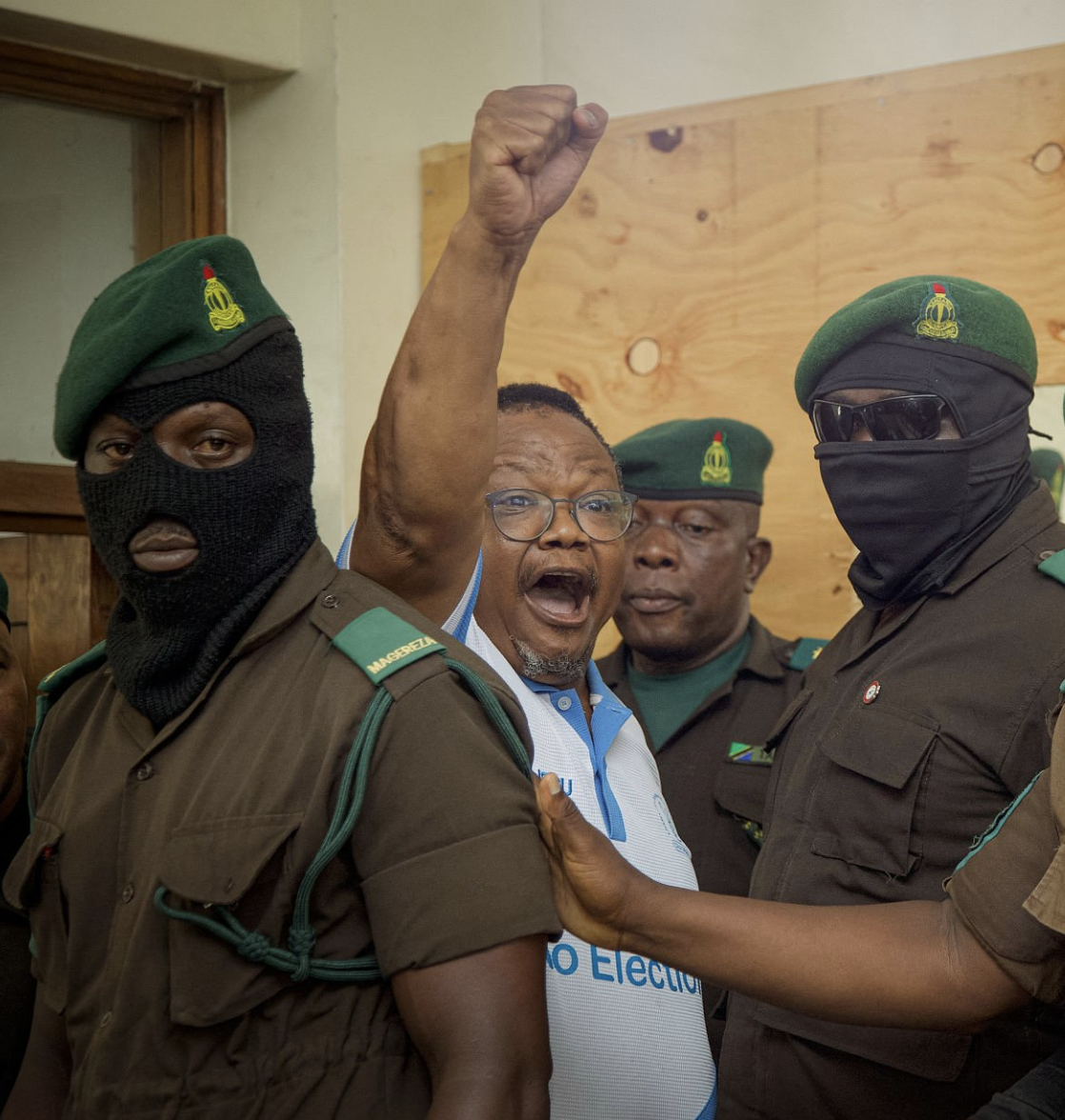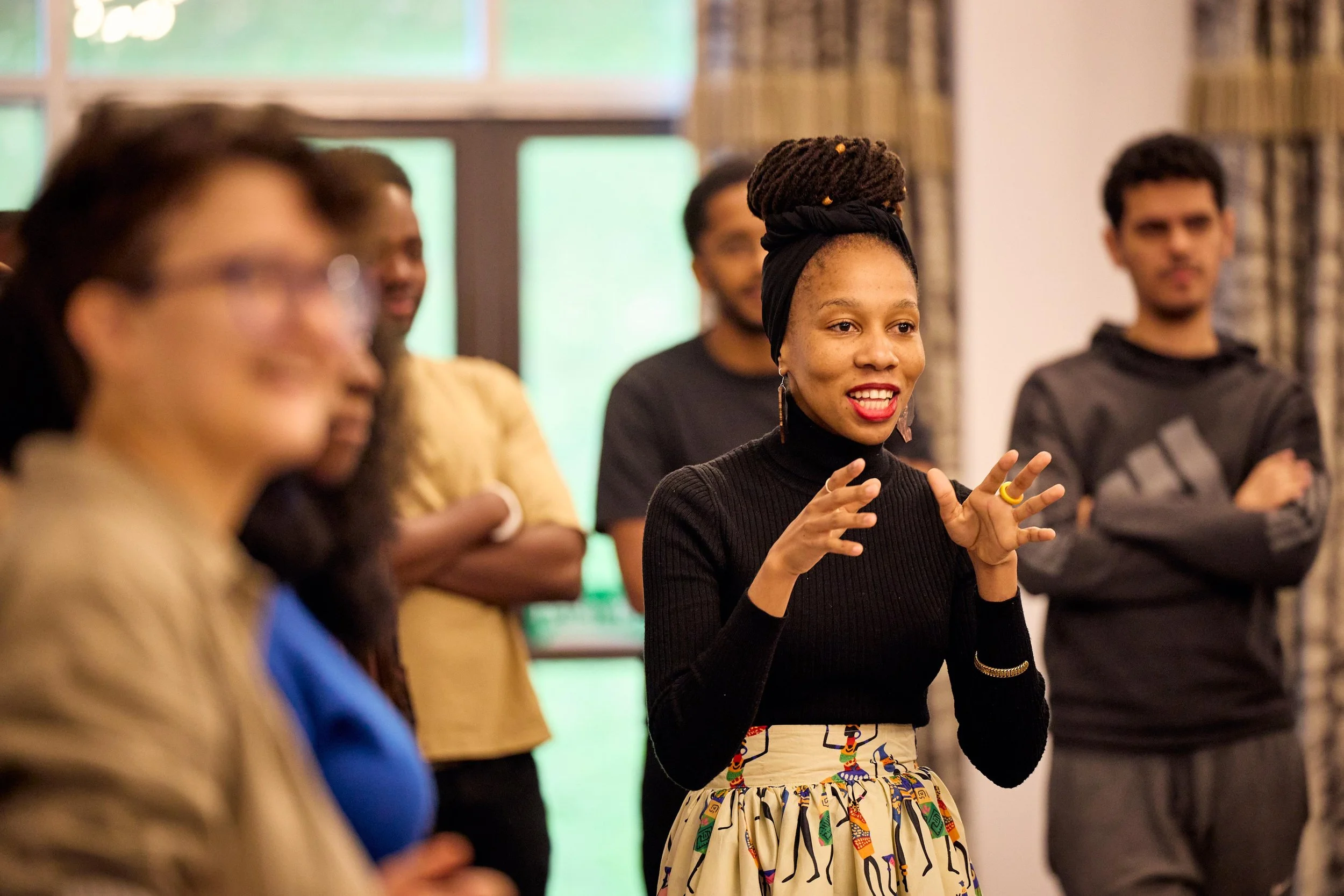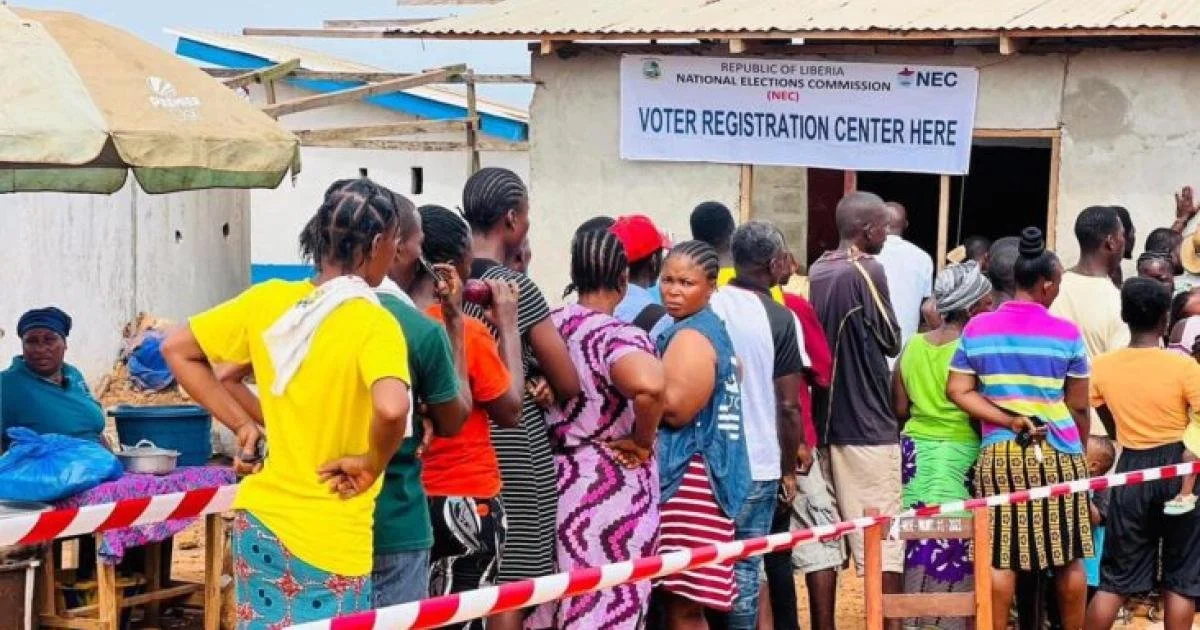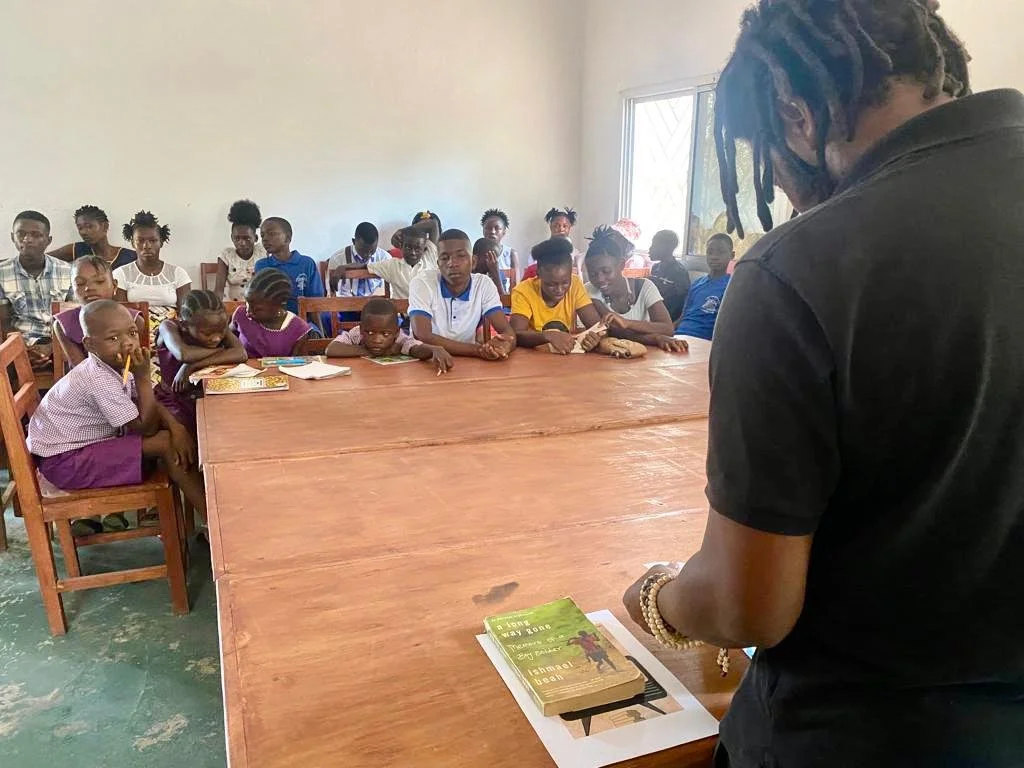Issa Tchiroma Bakary — the likely winner of Cameroon’s recent president election — appeals to Cameroonians and the global democratic community for solidarity. He denounces the Constitutional Council’s fraudulent declaration of President Paul Biya’s victory, describing it as a blatant theft of the people’s will and a constitutional coup. Bakary details the subsequent and ongoing crackdown on peaceful protesters and severe human rights abuses, including killings, arrests, and disappearances. He also outlines how the Biya regime can be held accountable by moving beyond statements of concern to impose targeted sanctions on those responsible for the repression.
Cameroon Holds Its Collective Breath
In this special follow-up post, Cameroonian journalist Tony Vinyoh captures a pivotal moment in Cameroon’s political history. Years of civil society efforts successfully reignited citizen engagement, with voters seemingly now determined to defend their ballots and expose electoral malpractice. Protest and resistance are reverberating across the country. And as accountability demands grow, pressure is mounting on the Biya regime, and political elites, to recognize a likely opposition victory.
Cameroon Braces for a Contested Election
This weekend’s election in Cameroon is marked by deep skepticism over its fairness, with government bodies accused of manipulating the process and suppressing opposition, writes journalist Tony Vinyoh. Despite systemic government efforts to control information and intimidate citizens, widespread frustration with the long-ruling Biya regime, as well as economic hardship, are fueling high civic engagement for this closely watched contest.
Mozambique: One Year After Our Stolen Election
Marking the one-year anniversary of Mozambique’s October 2024 election, opposition leader Venancio Mondlane — who many believe truly won the election — reflects on the country’s worsening conditions. He urges the international community to be vigilant and vocal about the ongoing injustices that are affecting Mozambican citizens.
Guinea: 4 Years on from the Military Coup
In this paper, Guinea’s former Prime Minister, Cellou Dalein Diallo, exposes the systematic human rights violations and suppression of fundamental freedoms perpetrated by Guinea’s military junta since it seized power in September 2021. The junta has banned peaceful protests, violently repressed dissent and the media, while manipulating the judiciary to target opposition leaders and civil society members. Most recently, the country’s September 2025 referendum, which was orchestrated under military oversight, has effectively rendered Guinea’s democratic institutions ineffective and stripped the referendum of all legitimacy.
Tundu Lissu: in His Own Words
Tanzanian opposition leader Tundu Lissu has been charged with treason, which carries the death penalty, for the ‘crime’ of campaigning for free and fair elections in a country where the ruling party, CCM, has been in power for 65 years. Prior to this episode, Lissu had already survived multiple attempts on his life, including being brutally gunned down inside the parliamentary compound in Dodoma in September 2017.
Most recently, on 26 August of this year, the country’s electoral commission barred the candidates from the two main opposition parties from standing against President Samia Saluhu Hassan in the upcoming election, paving the way for her return to power.
For the past four months, Lissu has been in solitary confinement in a six-foot-by-six-foot cell at the Ukonga maximum security prison in Dar Es Salaam. Last week, during a committal hearing, Lissu was allowed, for the very first time, to speak in his own defense.
This is his full, unedited testimony from the dock.
How Paul Biya Has Managed Over 40 Years in Power -- And Might Stay Longer
Cameroon’s long-ruling dictator, Paul Biya, has governed the country longer than most Cameroonians have been alive. Why? One reason is that oppression is easier to implement in a country like Cameroon, which is divided across regional, ethnic, and religious lines. While there are vocal critics of the system who risk their lives every day, most of their voices have been muzzled.
Violence and Trauma as Crucibles for Identity
In this guest post, activist and co-host of The Resistance Bureau, Mantate Mlotshwa, reflects on an important, often overlooked component of human rights work: how first- or second-hand exposure to violence and trauma can shape our lives in ways we never imagined, and how our identities are intertwined with the traumas we encounter and often bear witness to.
Ingabire Day: A Transcendent Struggle for Rwandans Dignity
In this guest post, human rights activist Denise Zaneza writes on the lasting importance of Ingabire Day, which commemorates the struggle for democracy and reconciliation in Rwanda, embodied by the saga of Ms. Victoire Ingabire Umuhoza, a prominent opposition leader, who was arrested on trumped-up charges and arbitrarily jailed on October 14, 2010.
Ahead of SADC Summit, Darkening Clouds Loom over Zimbabwe
In this guest post, Zimbabwean journalist Clemence Manyukwe writes on the escalating episodes of repression — including arbitrary arrests and detentions, acts of torture and surveillance — against pro-democracy activists. With Zimbabwean president Emmerson Mnangagwa set to assume the SADC chairmanship, regional analysts rightly fear that this will further entrench a climate of anti-democratic behavior and impunity across the region.
In Name Only: Uganda’s Constitutional Democracy
In this guest post, human rights lawyer Bwambale Asiimwe Micheal, writes on how Ugandan authorities have violated basic constitutional protections to peaceful assembly and demonstration by equating such rights to ‘criminal activity.’ The recent Gen Z protests in the country, culminating in a recent anti-corruption march, are now pushing the boundaries and bringing much-needed scrutiny to one of the world’s longest-ruling regimes.
Do Not Forsake Sierra Leone Amid ECOWAS' Legitimacy Crisis
Senegal’s Democratic Experiment at a Tipping Point
This weekend, voters in Senegal will head to the polls after three years of deadly unrest, political uncertainty, and valid questions about the sustainability of the country’s democratic institutions. In this timely guest post, local journalist Borso Tall captures the the mood of the country on the eve of the election and reflects on what potentially lies ahead.
A Diplomatic Clash and A Setback for Sierra Leone
In this guest post, our first of 2024, Sierra Leonean journalist Alpha Kamara writes on the recent coup attempt in Sierra Leone that implicated a former president. Despite prompt regional intervention and high-level diplomacy, the crisis is far from over with potentially long-lasting negative impacts for the country’s peace and stability.
African Coups and the ‘Failure of Democracy’ Myth
Across Africa, military leaders are more emboldened than ever, writes our executive director Jeffrey Smith. Over the past decade, there have been twenty-two coups and attempted coups across the continent, with fourteen of them taking place in the past three years. From Zimbabwe to Gabon, there is an understandable rejoice when a tyrant is toppled. But this optimism is misplaced and too often based on major misperceptions, resulting in an unnecessary defamation of democracy and democratic governance.
Liberia’s October Election: AU and ECOWAS must act outside the box
In this guest post, Liberian presidential candidate — and former high-ranking United Nations official — Sara Nyanti writes on the October elections taking place in her country, including the urgent need for democratic solidarity from the African Union (AU) and Economic Community of West African States (ECOWAS).
Senegal’s Culture of Dialogue and its Outsized Importance
Coups vs. Democracy and the Misunderstanding of Africa's Youth
In this guest post, Togolese activist Farida Nabourema writes on the recent coup d’etat in Niger, which is now the sixth military takeover in the West African sub-region to occur over the past two years. She writes that there is a fundamental misunderstanding in regards to the seeming embrace of coup leaders by the youth: it is not because they prefer military to democratic rule, but rather that they have been stripped of hope and denied agency by those in power. In effect, electoral democracy in Africa today has become a ‘luxurious good that only the rich and powerful can afford to purchase at the expense of the sweat and blood of the poor.’
Democratic Terrorism in Nigeria
In this guest post, Nigerian author and activist Raphael Adebayo writes on ‘democratic terrorism’ and asks: When does the question arise about the delta between the process that brought Tinubu to power in Nigeria, and the ones which propel putschists to seize it? How is Tinubu’s declaration as Nigeria’s president different from the emergence of military-backed coupists like Goïta in Mali, Doumbouya in Guinea, Traore in Burkina Faso, and Tchiani in Niger?
Sierra Leone: Imposing Peace Will Not Build a Democratic Nation
In this guest post, activist and bestselling author Ishmael Beah reflects on the widespread restrictions of human rights in Sierra Leone in the lead up to the general elections scheduled for June 24. He argues that this ‘imposition of peace’ — and the threats from the state to enforce silence — are merely planting the seeds of future unrest and chipping away at Sierra Leone’s standing as a democratic nation.





















